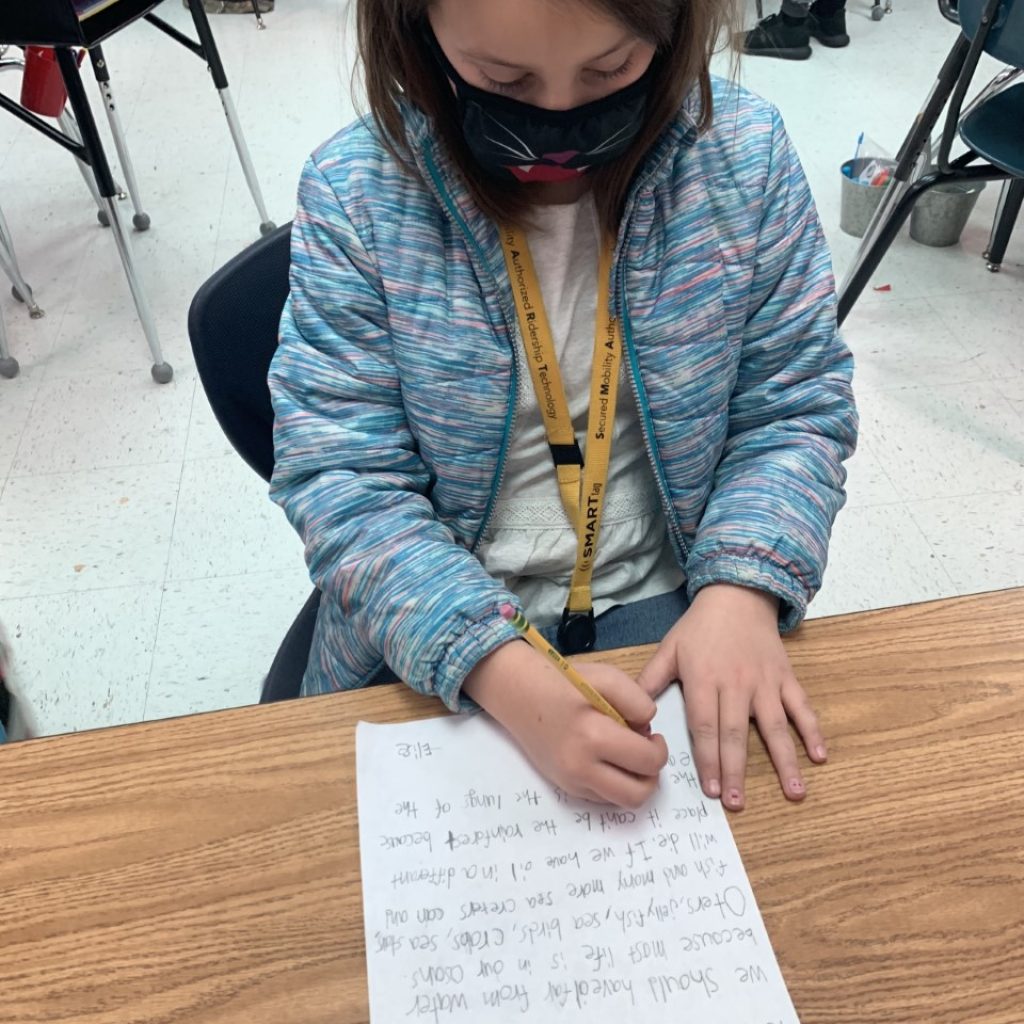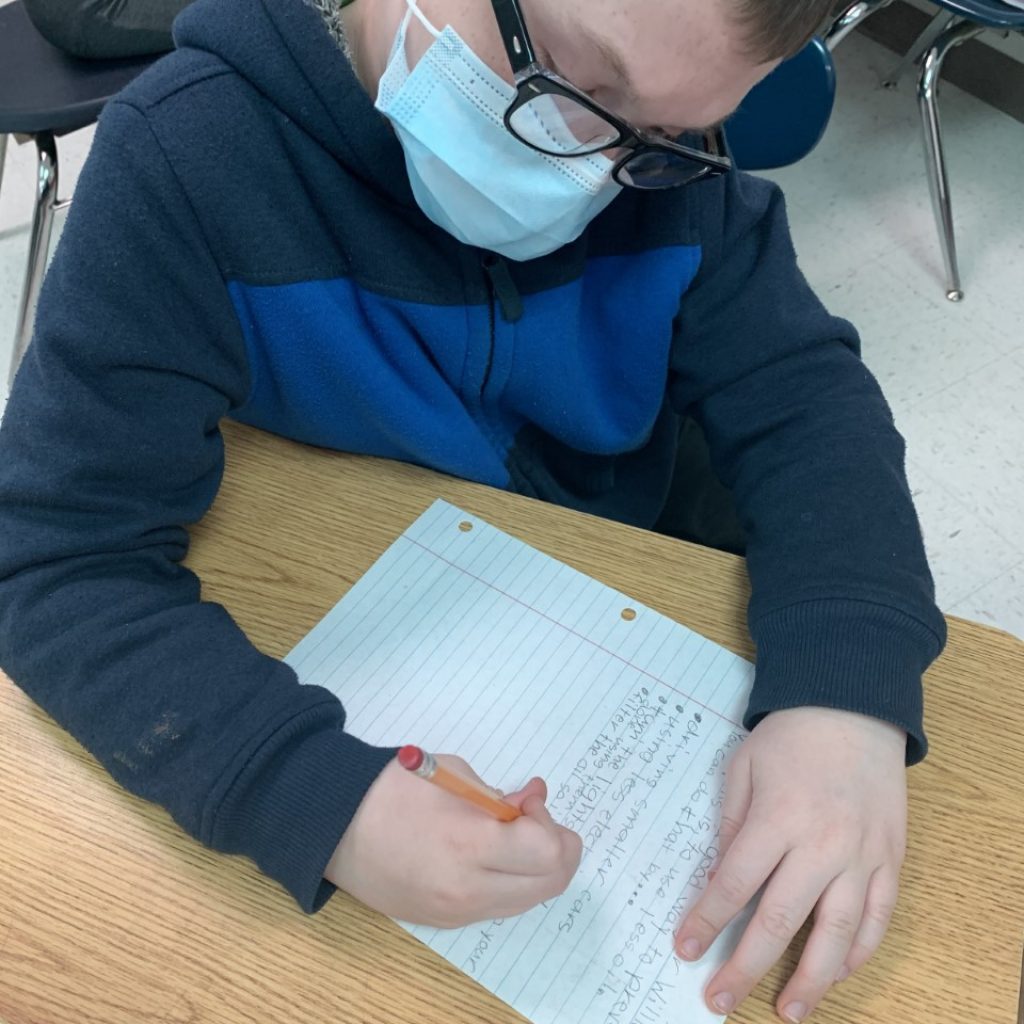Reading sparks action in Clements/Parsons Elementary students
Clements/Parsons Elementary third graders were learning about the author’s point of view in their Language Arts/Reading class when they were introduced to expository texts that piqued their interest in more than just reading.
Students became inspired to affect change while reading Oil Spill! By Melvin Berger. The book discusses the effects of environmental tragedies like the crash of the Exxon Valdez oil tanker.

“Learning about nonfiction text features and realistic illustrations helps students develop a deeper understanding of scientific concepts into their reading lessons,” said teacher Sheila Grantham who was teaching the lesson. “Students discussed information about oil spills and their effects on the environment. Learning about the many birds, mammals, and fish that are hurt or killed because of these oil spills caused these third graders to get fired up to help.”
Students brain stormed ideas of different ways to not only clean up oil spills but to also prevent them.
“By creating ships with two steel reinforced hulls will prevent the oil from leaking into the ocean if the other one was to become damaged,” said Talon Goodwin as he looked for ways to solve the complex issue.
To have their ideas heard, the students put pen to paper and wrote letters to their U.S. congressman, Roger Williams, and mailed them to his office.
Student Somaya Rivera asked Williams to think about using additional natural resources other than oil.
“Even if we just use less oil, we can stop so many oil spills,” Rivera said.
Student Kash Martinez suggested purchasing oil stateside to reduce transportation distances.
“One way we could stop oil spills is by the government buying oil from smaller American companies,” Martinez said. “The oil companies would not have to cross the ocean and the oil wouldn’t accidently spill into our oceans.”
The discussion of stopping oil spills also ignited thoughts about saving energy in other ways.
“We can drive smaller cars, turn off the lights when you aren’t in a room, and use less electricity,” student Tyler Pack suggested.

Grantham was proud of the thought her third graders put into their letters.
“Each student spoke from the heart to Congressman Williams,” Grantham said. “It is important for students and adults to take the initiative to make the world a better place for the future generations.”
According to the U.S. Department of Energy, 1.3 million gallons of petroleum are spilled into U.S. waters from vessels and pipelines in a typical year. A major oil spill could easily double that amount. Grantham’s students learned why oil spills happen, how they are cleaned up and what effects spilled oil has on our ocean plants and wildlife.
“If we don’t stop oil spills now, we won’t have any fish left when I grow up,” student Khameryne Griffen said.
